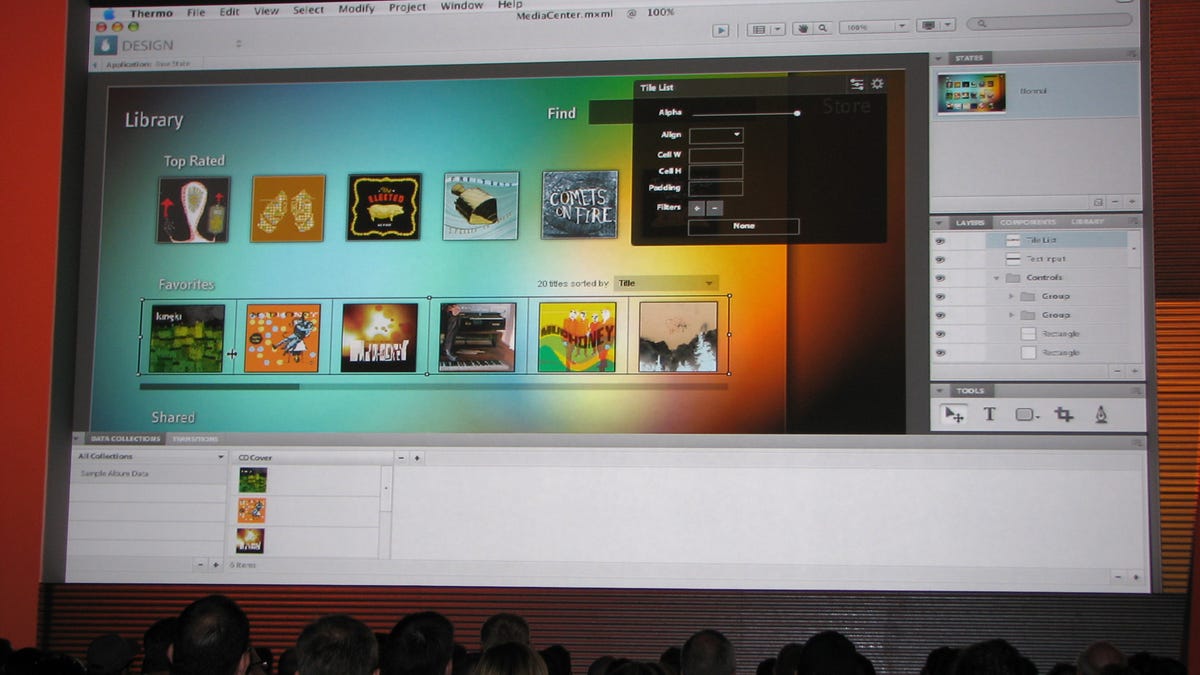Adobe expands online services, woos designers with Thermo
Adobe readies voice over IP, document collaboration and workflow services while it works on a design tool for writing Web applications.

CHICAGO--Adobe Systems, one of the largest providers of packaged software, is aggressively expanding into online services as it seeks to garner more revenue from the Web.
At its Max developer conference here on Tuesday, company executives detailed collaboration and document workflow Web services scheduled for release in the next year.
The company also showed off Thermo, the code name for a new tool aimed at letting designers, rather than programmers, build rich Internet applications.
Adobe's strategy is to introduce services as complements to its existing desktop and server applications. It is still experimenting with different business models to charge for services, which could include shared revenue from advertising or subscriptions, executives said.
"We're looking at how monetization of software in the services world changes and Adobe needs to change with that," said Chief Software Architect Kevin Lynch on Monday.
During a keynote on Tuesday, Lynch said that Adobe is still "in the early days" of offering services but the company intends to offer more.
Within a month, Adobe will launch the beta of Pacifica, software making high-quality Internet phone calls between two people. Pacifica will include other services like text messaging as well.
Executives also demonstrated CoCoMo, the next version of its Adobe Acrobat Connect Web conferencing product which is set for final release next year.
Adobe will host services that will let developers use its Web conferencing and collaboration services, such as video streaming, instant messaging and shared whiteboards, from their applications, executives said.
Developers can make changes to their existing applications written with Flex Builder on the client side.
Adobe also launched a beta of a service called Share, which enables people to share documents online. Adobe will offer 1 gigabyte of storage for free and later offer subscription-based premium services.
Future features of Share will include tagging, filtering, integration with its Web word processor Buzzword and server-side document conversion between Microsoft Office and OpenDocument formats, said Andrew Shebanow from Adobe.
The company also plans to offer its LiveCycle ES document workflow server as a hosted service, Lynch said. And it expects to offer its Scene7 image-streaming Web service to small companies and individual designers.
Bridging the developer-designer divide
During a keynote speech, conference attendees also got a look at Thermo, a tool aimed at letting designers write applications and work more smoothly with professional developers.
Designers should have access to a test version of Thermo next year.
"We are trying to make it so designers don't have to change the way they work and what they give to developers makes more sense," said Mark Anders from Adobe.
Designers can work with the visual components of an application's design transitions and layout without having to write Flex code, Anders said. The visual components show up as "layers," or individual elements, the designer can manipulate.
The demo drew many rounds of applause from the audience of designers and developers. Stephen Pillbeck, the designer at Marketplace Digital, said he will definitely use Thermo when it's available.
"With that, I could stay in design mode and develop myself and then hand it off to the developer to do the database work," Pillbeck said.

